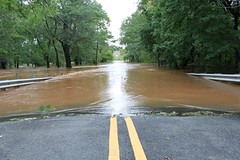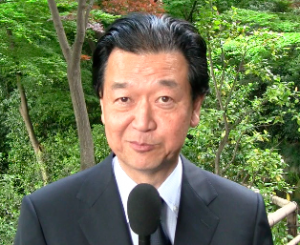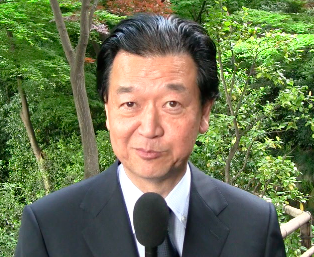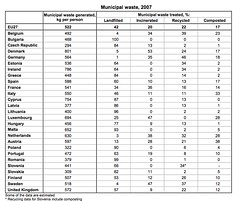
The images from my home state of New Jersey the days following hurricane Irene featured flooding like few had ever seen before. The images also showed one re-occurring theme: Infrastructure collapse. Chunks of highway collapsing, a struggling power grid, and rivers rising up and swallowing entire communities. Things growing up in the suburbs of New York City, even to this day, many people never imagined could happen. But this lack of imagination is no excuse for ignorance regarding a looming crisis. There is no shortage of research and reports, as well as examples over the past decade, all of which point to the fact that all over the United States (theyre not alone of course) infrastructure is stretched and strained to its limits. The glorious promise of privatization leading to improved services has resulted in just the opposite. Lack of significant investment under a whole list of economic and social excuses has left millions of people on the edge of a crisis, many of whom don’t even know about it. Or perhaps, they don’t want to know or will never understand.
There is a phenomenon that didn’t start with this generation or this era, but has very much been perfected in our time: the art of knowing but not wanting to know. That mobile phone we all carry can poison your body – but how could we be without our phones? The computer we type on is made from toxic chemicals and will one day poison our soil – but how can we not have these essential machines? Cod Fish is on the verge of extinction – but it tastes so good! And of course on the macro scale – our global way of life is destroying the earth at a dangerous rate – but how can we not live the way we live?!
Eddie Izzard, the great comedian and life philosopher, used to do a bit about mass murderers and genocidal maniacs. He said something to the effect of “When you murder someone, we know what to do with you, we put you in prison… but over 10 or 20 people.. we can’t deal with that, we invent things like house arrest and hope no one ever goes in that house.” Though he was joking I find a great deal of observational wisdom that I apply in present day situations like the crumbling of our infrastructure. Like having to deal with genocidal maniacs, we are once again in a situation that is too hard for many to process. You can present facts and even wait for terrible things to happen which confirm the problem, and still people find a way to ignore it. Perhaps it is simply a mass coping mechanism. Otherwise everyone would so into either a deep depression or a dangerous panic. That or, they might try finding solutions and taking action to better prepare for the future. Regardless of what the economists or the politicians say.
Meanwhile many keep telling themselves that its only a few roads and a few parts of the country that had problems. Keep repeating that line about how these events are rare. Whatever it takes, I suppose, for us to collectively cope and keep doing (or not doing) the same things we always have.

 What happens when a someone living in the big money banking sector one day quits it all and tries out the world of environmental activism and conservation? Chiew Y. Chong did just that over 18 years ago when he joined the
What happens when a someone living in the big money banking sector one day quits it all and tries out the world of environmental activism and conservation? Chiew Y. Chong did just that over 18 years ago when he joined the 